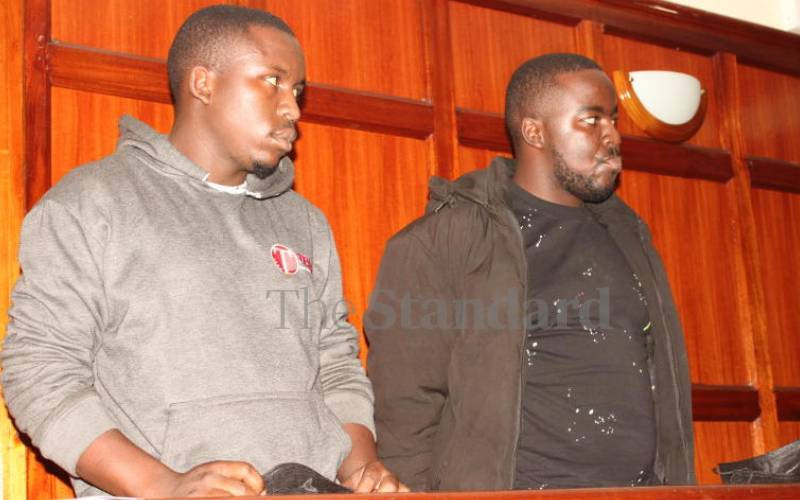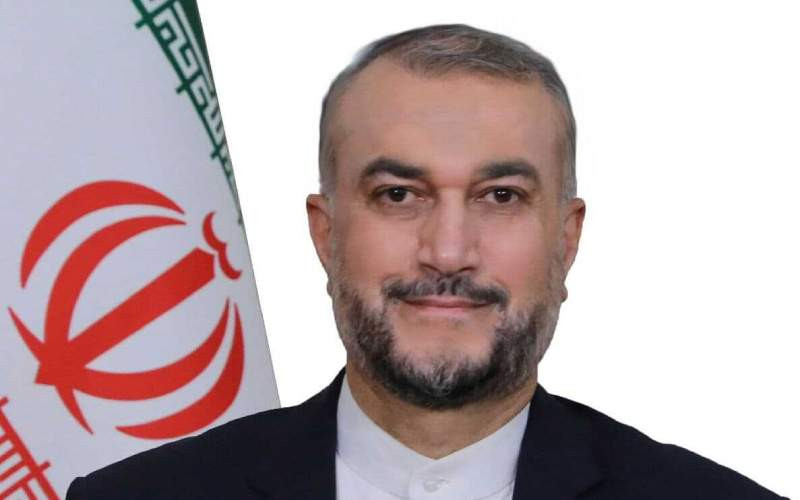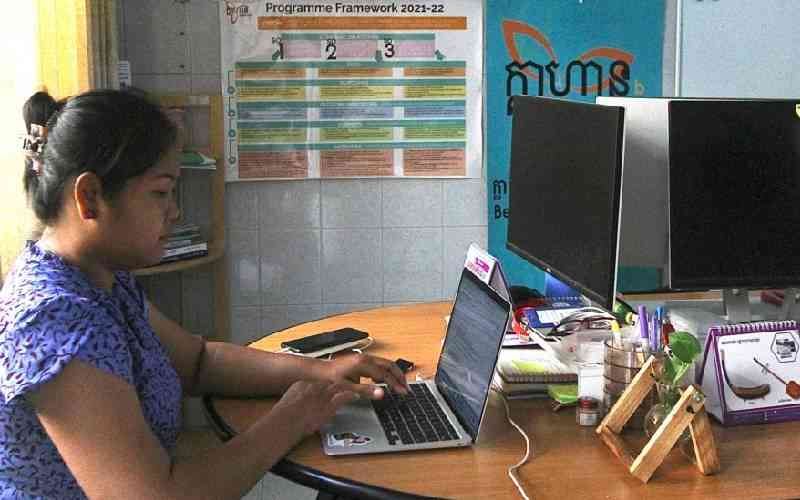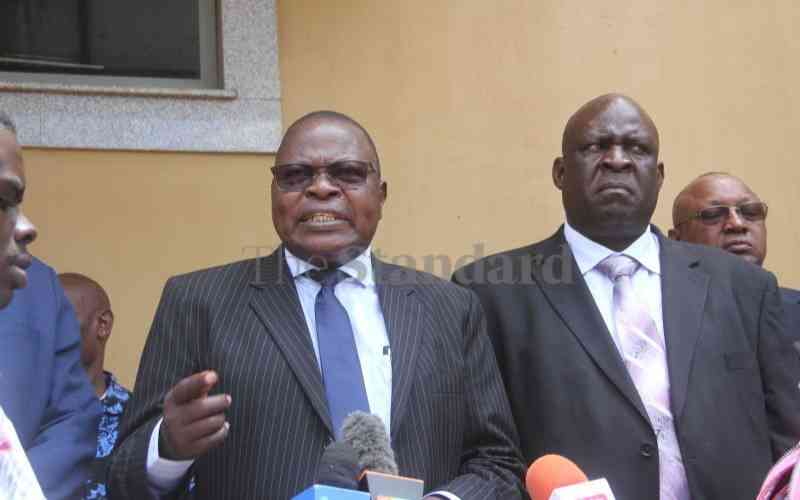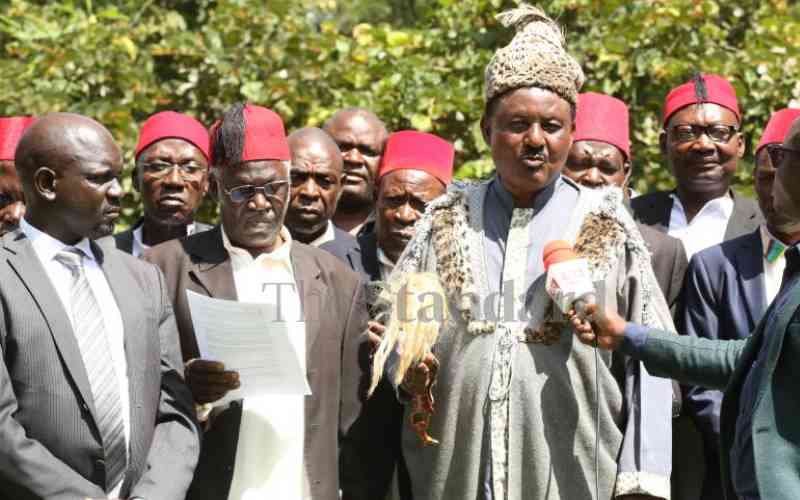A former police officer murdered his wife, burnt her body in woodland and then buried her in a shallow grave, a court heard.
Rodrigo Giraldo, 55, is on trial over the death of Luz Margory Isaza Villegas, 50, whose charred remains were found in a suitcase by a police search team in January.
She was reported missing from the couple's home in Hemel Hempstead before her body was found four days later at Northchurch Common on the Chiltern Hills near Berkhamsted in Hertforshire.
St Albans Crown Court heard Giraldo has pleaded not guilty to her murder, but admitted a charge of preventing the lawful and decent burial of his wife, who was known to everyone as Margory.
Outlining the case to the jury, prosecutor Stuart Trimmer QC said in January of this year the couple - who have three grown up children - were going through a trial separation but were still living in the same house.
In September of 2018 with the marriage in “turmoil” and failing, Margory informed her husband she wanted to separate.
The couple had come to the UK as refugees with their three young children in 1999 from Columbia, where Giraldo had been a police officer.
In the UK he worked as a “parking control officer.”
Mr Trimmer said: “The defendant had become obsessive over his wife after she told him she wanted to separate. His children say he was worried his wife was cheating on him and would leave him.”
At their home they were living and sleeping in separate rooms, but he would check her bags and mobile phone whenever he could, the court heard.
The jury was told the last contact anyone had with Margory was at around 9.30am on the morning of Sunday January 13 this year, when her daughter Ana, who was on a weekend break in the Netherlands, received a WhatsApp video message from her.
The prosecutor said it was the crown’s case that she was killed that morning at the family home.
Mr Trimmer said that Giraldo, having killed his wife, then moved his car to the entrance to an alleyway that ran down the side of the home to the rear garden.
He said that enabled Giraldo to move her body which he had placed into a large suitcase, to his car using a trolley.
Out of sight from a neighbour’s CCTV camera he was able to get the suitcase containing his wife into his car, the prosecutor alleged.
Stay informed. Subscribe to our newsletter
The jury was told the defendant had a petrol can in the car, a yellow handled spade and the trolley cart.
CCTV captured Giraldo walking towards the car with the two-month-old baby girl he and his wife had fostered back In November of 2018, said Mr Trimmer.
He continued: “At 2.06pm he is seen to leave the address again this time carrying the baby and approaches his car and drives off."
The court was told from the house, Giraldo drove towards Berkhamsted and made his way to the nearby Northchurch Common.
Mr Trimmer said that afternoon, a group of young people were on the common with their bikes.
“Notwithstanding his care not to be observed, he was seen. They observed a small man with a shovel,” he said
The court was told they saw a small fire behind bushes close to where he was.
“They went away on their bikes and came back and saw the same small man with a shovel and filling in a hole,” said the prosecutor.
He told the jury that Giraldo having got the suitcase and its contents behind the bushes, had then dug a shallow grave before placing it in the hole.
Next, the jury heard Giraldo had poured petrol over the case and set fire to it before covering it up with the soil.
The prosecutor said by now the defendant’s children were trying to contact both him and their mother.
All the attempts to talk to her went to voicemail, the jury was told.
That afternoon, the court heard the defendant’s son Julian managed to get through to him.
“The son asked his father where the baby was and he said ‘I have the baby with me,” said Mr Trimmer.
“Almost certainly he had finished burning and burying his wife and almost certainly was driving home."
The jury heard that evening, Giraldo collected his daughter Ana from Luton Airport after she had returned from her weekend break.
During the journey back to the family home, she questioned him about her mother’s whereabouts, said the prosecutor who said she noticed his demeanour was “strange.”
At one point he is alleged to have told her “Yo lo Mate” which she understood to mean “I killed her.”
To his son Julian he is alleged to have said that day: “Your mum has gone, maybe she will never come back again”
Late that night the police went to his home having received a call from a member of his family that Margory was missing.
He was arrested the next day.
The court was told police were able to get a fix on the area of the common where the the wife had been buried by tracking the movement of both her and her husband’s mobile mobile phones on the day of her disappearance.
Fresh mud and loose stones alerted one officer, said Mr Trimmer, and upon closer examination what appeared to be “human flesh” was observed.
He told the court the suitcase was unearthed and inside the charred remains of the wife dressed in pyjamas with floral bottoms was discovered.
Plastic sheeting had been placed over her head and shoulders, he said. The court was told she had blunt force traumas to her neck and face.
Mr Trimmer said bruising within the neck suggested there could have been “strangulation”
Further findings, he said, indicated she was already dead when the suitcase with her inside was set on fire.
There was nothing with the body to identify her and the court heard her mobile phone has never been found.
But the nozzle from the petrol can had been left at the site of the shallow grave and when forensically examined was found to contain the defendant’s DNA, the jury was told.
Interviewed by officers, all he would say was that there had been an argument the day of her disappearance and after she had left the house he went out about 3pm to look for her in his car.
“In truth by 3pm he was about to get to the grave and about to take the body out of the car,” said Mr Trimmer.
He told the jury: “Only the defendant knows the events which led to the death of his wife. He has chosen not to tell anyone.”
The prosecutor said the husband was charged with the murder of his wife before her body had been found.
After he had been charged, the court heard he was asked again where his wife’s body was and replied: “I don’t know.”
Mr Trimmer said: “He knew perfectly well where she was. She was in that hole.”
The couple's eldest son Julian told the jury how at the time of his mother’s death his parents were going a separation, although they were still living under the same roof.
Asked if his father thought his mother was “seeing someone else” he told Mr Trimmer: “Yes it was something in his head.”
He said he spoke to his father on the phone on the afternoon of January 13 this year and found he was driving.
“He told me he was looking for my mum,” he said.
The son said he asked his father where the baby was because he knew his mother would never leave her.
“He said I am with the baby,” Julian told the jury.
The son then said his father told him: "Your mum has gone, I need your help, come quickly.”
The jury heard he drove from London to the family home in Ritcroft Street to find his father coming out of the shower and the baby on a mat.
He told the court his father continued to act strange saying things like: “Your mum has gone. Maybe she will never come back again.”
Julian said when he questioned his father about scratches on his face he was told: “Oh we had an argument and she left."
The son told the court he remained at the house trying to find out from his father what had happened and where his mother was.
He said when his sister Ana arrived at the home, she was “ruthless” in her questioning of their father telling him: “You have killed her haven’t you.”
Julian said his father replied “Oh no, I haven’t done anything.”
The trial continues.
 The Standard Group Plc is a
multi-media organization with investments in media platforms spanning newspaper
print operations, television, radio broadcasting, digital and online services. The
Standard Group is recognized as a leading multi-media house in Kenya with a key
influence in matters of national and international interest.
The Standard Group Plc is a
multi-media organization with investments in media platforms spanning newspaper
print operations, television, radio broadcasting, digital and online services. The
Standard Group is recognized as a leading multi-media house in Kenya with a key
influence in matters of national and international interest.
 The Standard Group Plc is a
multi-media organization with investments in media platforms spanning newspaper
print operations, television, radio broadcasting, digital and online services. The
Standard Group is recognized as a leading multi-media house in Kenya with a key
influence in matters of national and international interest.
The Standard Group Plc is a
multi-media organization with investments in media platforms spanning newspaper
print operations, television, radio broadcasting, digital and online services. The
Standard Group is recognized as a leading multi-media house in Kenya with a key
influence in matters of national and international interest.


